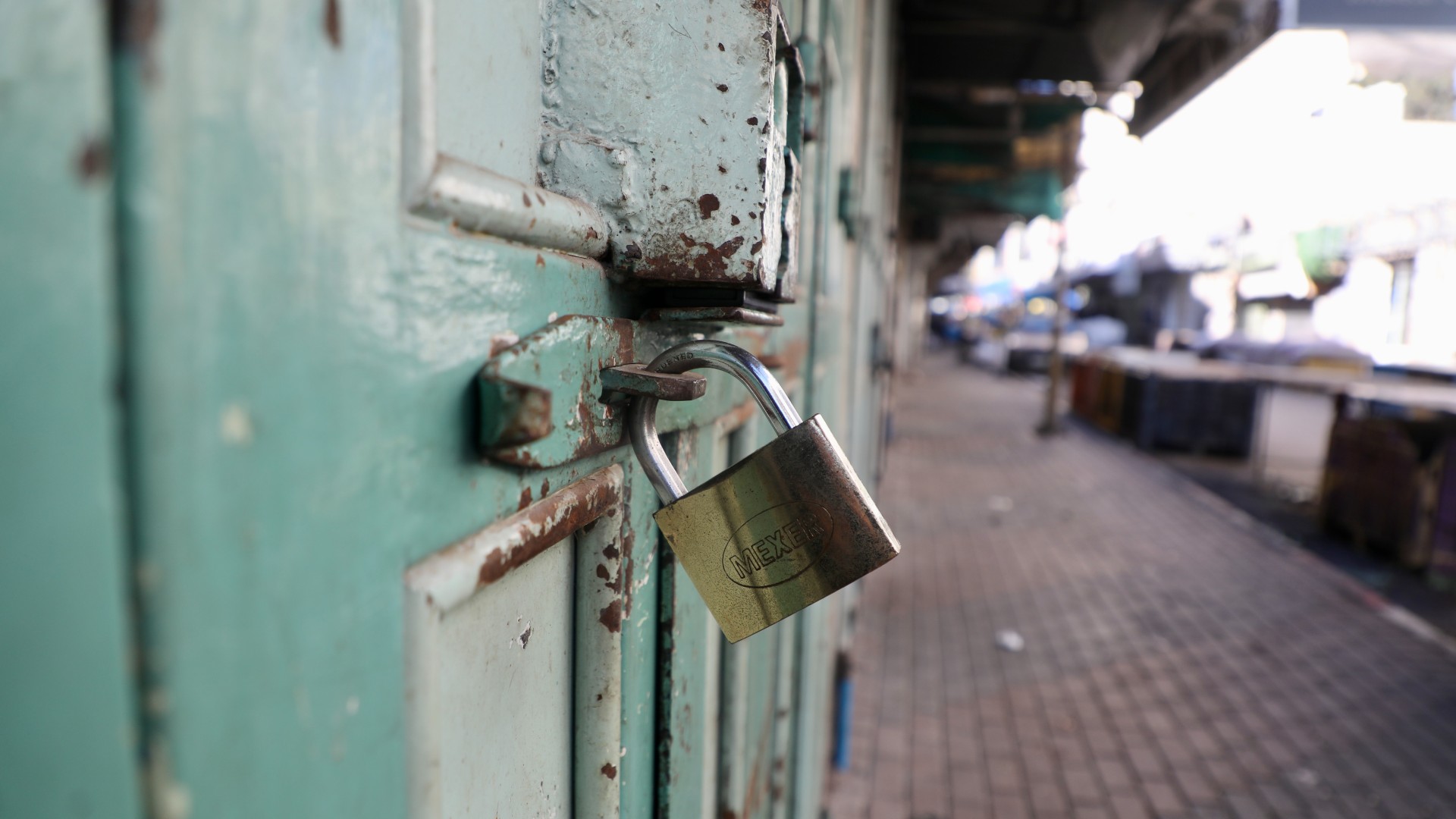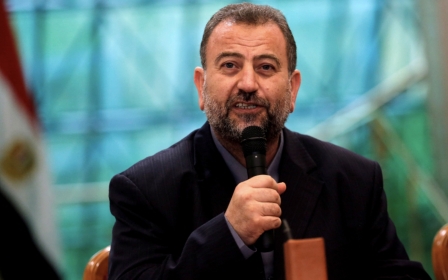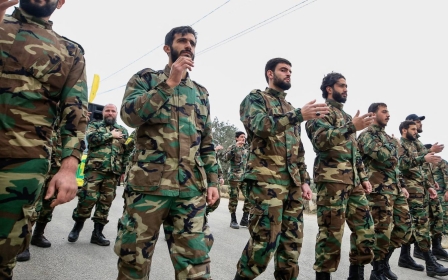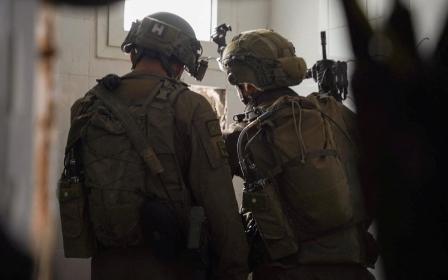War on Gaza: General strike held across West Bank over Israel’s killing of Hamas leader
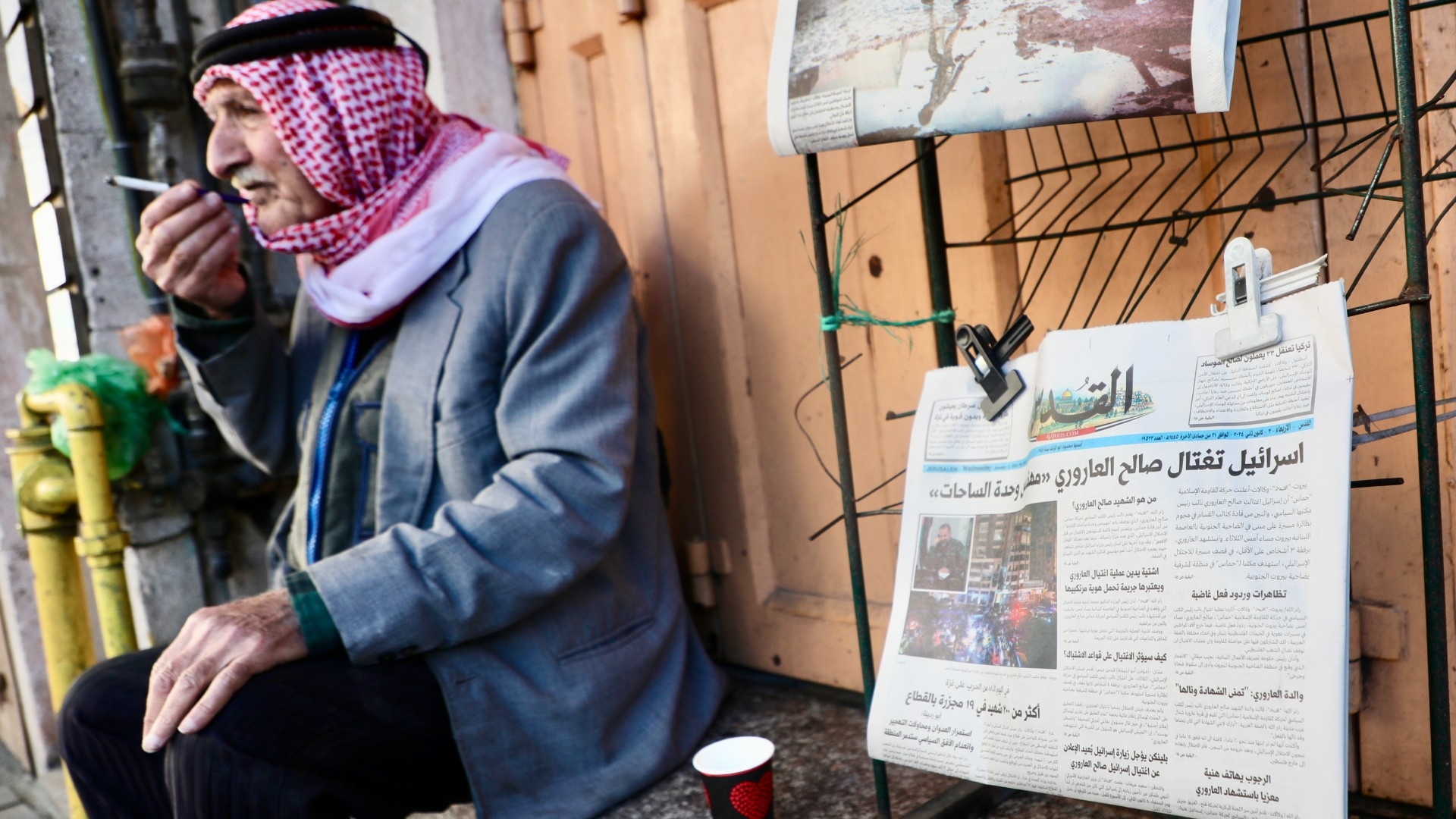
A general strike is being observed across the occupied West Bank on Wednesday to mark the assassination of the senior Hamas official, Saleh al-Arouri, who was killed in a targeted Israeli attack in Lebanon on Tuesday.
The general strike in the West Bank involves the shuttering of all businesses and services, including shops, banks, commercial facilities and public institutions. Transport has also been disrupted with partial cancellations.
Arouri, the deputy chairman of Hamas’ political bureau and the chief of the group’s operations in the West Bank, was killed in the Lebanese capital Beirut along with at least six others.
Footage shared on local media showed the burnt-out wreckage of several vehicles in southern Beirut, as crowds gathered nearby after the attack.
New MEE newsletter: Jerusalem Dispatch
Sign up to get the latest insights and analysis on Israel-Palestine, alongside Turkey Unpacked and other MEE newsletters
Lebanese Prime Minister Najib Mikati condemned the explosion, calling it a "new Israeli crime".
West Bank in mourning
A political activist from Hebron told Middle East Eye that all of the occupied cities are in a state of “sadness and mourning” over Arouri's killing.
“It was a cowardly crime, and especially here in Hebron it is sad, this city embraced Arouri for a long time. This strike demonstrates people's support for the resistance and their feelings against the occupation’s crimes in Gaza and in the West Bank,” he said.
'It was a cowardly crime, and especially here in Hebron it is sad, this city embraced Arouri for a long time'
- Hebron activist
“What happened shows that the occupation failed and did not achieve any success in Gaza, forcing them to go into Beirut instead. It was an organised war crime in our beloved Lebanon. We call on everyone all over the world to hold Israel accountable in international courts.”
Majda Tumaisa, also from Hebron, said that a full strike is the least that can be done following Arouri’s killing.
“The occupation thinks that by killing prominent figures such as Arouri they are killing Palestinians and their spirits but they do not know that thousands will come following Arouri and that as long as there is occupation there will be resistance,” she said.
Suhail Nasser al-Din, a resident in Hebron, called the killing of Arouri “a brutal crime” and called on leaders in Lebanon to take action.
“We call on people in south Lebanon to take action due to this dangerous escalation…for this to happen in the heart of Dahia, with a strong Hezbollah presence, where are you?” he said.
Israeli officials have repeatedly vowed to attack Hamas leaders outside of the occupied Palestinian territories, including in Lebanon, Qatar and Turkey, following the 7 October attack on southern Israel.
In November, Israeli Prime Minister Benjamin Netanyahu said he had instructed Mossad, Israel's intelligence service, to "assassinate all the leaders of Hamas wherever they are".
Calls for demonstrations
Following the killing of Arouri, there have also been widespread calls for a demonstration in the occupied Palestinian territories.
Palestinian parties and factions had called for joint action as well as protest rallies against Israel.
On Tuesday evening, hundreds of people came out in the streets of Ramallah, Arouri’s birthplace, to demonstrate and denounce Israel. Many also praised Arouri's role in resistance against Israel during the protest.
Prison and a bounty
Arouri spent 18 years in Israeli prison before being released in 2010 and deported to Syria.
He then lived relatively freely within Beirut, but he was placed on a US terrorist list in 2015 and had a $5m bounty on his head by Washington.
His assassination on Tuesday is a serious escalation by Israel, both against Hamas’s leadership abroad and Hezbollah.
The Lebanese group has been involved in low-level skirmishes on Lebanon's southern border, launching periodic strikes against Israeli forces.
Israeli air strikes and shelling have killed more than 100 Hezbollah fighters and nearly two dozen civilians, including children, elderly and several journalists, according to Hezbollah and security sources.
Middle East Eye delivers independent and unrivalled coverage and analysis of the Middle East, North Africa and beyond. To learn more about republishing this content and the associated fees, please fill out this form. More about MEE can be found here.


